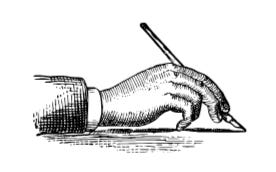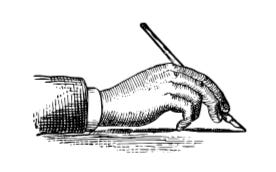Joyance, methinks
Sunday Essay

Historical fiction is one of my favorite genres. As I come across archaic words, I write them down: my nature as a verbihund will scarcely let me do otherwise. These words add flavor, interest, and texture, infusing the story with rich flavors of the past. Often, the novelty (no pun intended) alone is a bracing cure for the ever-multiplying passel of new terms we encounter every day.
Here are a few such treasures. When encountering something new, the brain wants to connect the unknown with something familiar. Sometimes this works well, as with the word joyance; other times, the connection is puzzling and even humorous, as with deodand—not remotely related to either deodorant or dander.
Here, then, are my exhibits for your edification, evaluation, and pleasure!
clodpoll noun, (ˈkläd-ˌpōl)
blockhead, stupid person
This makes sense when you see “clod,” which is a lump of clay, plus “poll” meaning head. We see clod in “clodhopper” meaning clumsy, rustic, or wearing heavy shoes, weighed down with clay from working in the fields.
Can you believe that clodpoll actually believes QAnon conspiracies?
daggle verb, (dăg' g’l)
to trail, so as to wet or befoul; to make wet and limp; to moisten.
I love this one! It feels like a quasi-portmanteau, redolent of bedraggled doggos—muddy mutts panting homeward following a mud-puddle romp after a half-hearted attempt at not-really-chasing a gaggle of geese!
The warrior's very plume, I say, Was daggled by the dashing spray. - Sir W. Scott
deodand noun, (dē’ ə dand)
English Law (before 1846)
an animal or article that, having been the immediate cause of the death of a human being, was forfeited to the crown to be applied to pious uses
1520–30, Middle Latin deōdandum (a thing) to be given to God < Latin deō to God + dandum to be given
After arresting the blacksmith for the deed, the coroner took the hammer used to kill the miller as deodand.
dispiteous adjective, (dis-pit’-ee-uhs )
(not the metal band, although they get points for using the word!)
malicious; cruel; pitiless.
1795–1805; earlier despiteous, alter., after piteous
despite: c. 1300, despit "contemptuous challenge, defiance; act designed to insult or humiliate someone;" mid-14c, "scorn, contempt," from Old French despit (12c, Modern French dépit), from Latin despectus "a looking down on, scorn, contempt," from past participle of despicere "look down on, scorn," from de "down" (see de-) + spicere/specere "to look at"
The witness was treated with such dispiteous behavior on cross examination, that he needed to take a break.
joyance noun, (jȯi-ən(t)s)
delight, enjoyment
Excerpted from The Eolian Harp By Samuel Taylor Coleridge Composed at Clevedon, Somersetshire “…As twilight Elfins make, when they at eve Voyage on gentle gales from Fairy-Land, Where Melodies round honey-dropping flowers, Footless and wild, like birds of Paradise, Nor pause, nor perch, hovering on untamed wing! O! the one Life within us and abroad, Which meets all motion and becomes its soul, A light in sound, a sound-like power in light, Rhythm in all thought, and joyance everywhere— Methinks, it should have been impossible Not to love all things in a world so filled; Where the breeze warbles, and the mute still air Is Music slumbering on her instrument.”
makebate noun, (māk’- bāt)
one who excites contention and quarrels
from 1529: make as in the sense of “to fashion” +
bate, c. 1300, "to contend with blows or arguments," from Old French batre "to hit, beat, strike" (11c., Modern French battre), from Late Latin battere, from Latin batuere "to beat, knock"
Plenty of MAGA makebates are putting the safety of others at stake by spreading false and malicious stories about immigrants.
meed noun, (rhymes with need)
payment or reward; recompense
before 900; Middle English mede, Old English mēd; cognate with German Miete hire; akin to Old English meord, Gothic mizdō, Greek misthós reward
I wouldn’t mind a cup of mead as meed for volunteering today.
Some of these archaic words, like makebate, will likely not make a resurgence into modern parlance, although others—like joyance—are welcome and useful words we could invite back into regular use!
Thank you for daggling yourself to the Verbihund Café!
Ways to support writing as a livelihood; each one is appreciated!
restack this post
send to a friend
share on social media
send to others who love words and language!




Joyance definitely should be brought back into common use!
Hmmm. I vote for 'makebate'. Has a good earthy sounds to it.